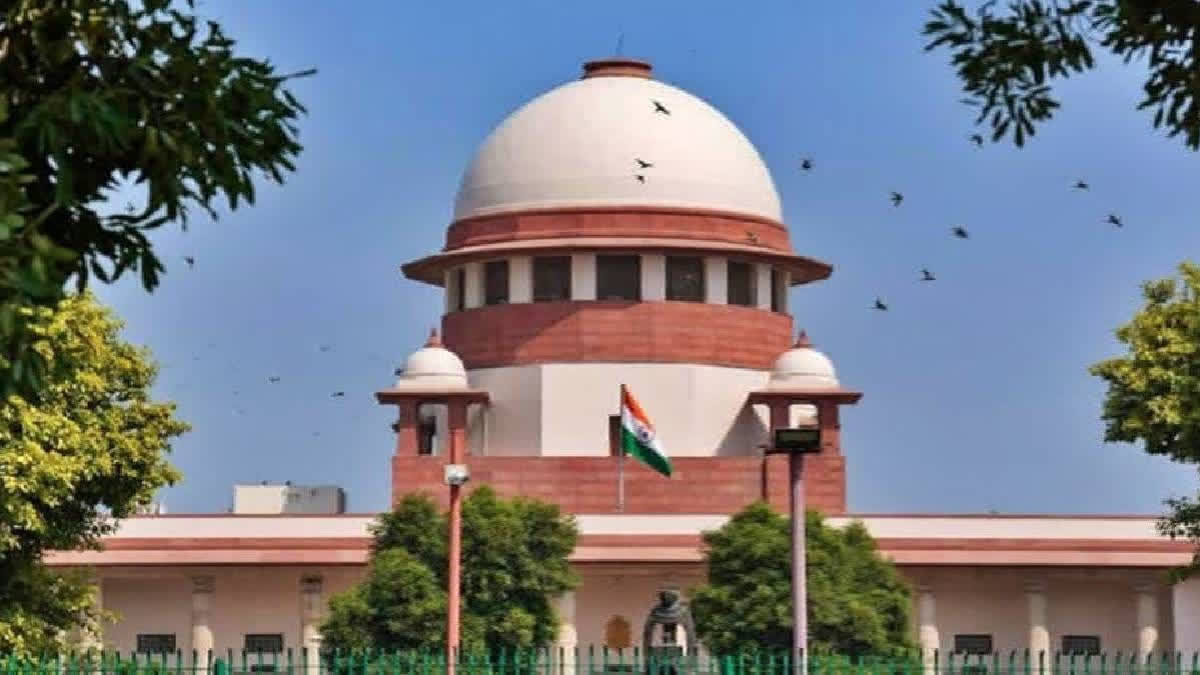New Delhi: The Supreme Court recently chose to apply judicial pragmatism instead of stern legal procedures while setting aside the conviction of a man for kidnapping and raping a minor tribal woman, to whom he is married for over two decades. The couple has four children from the wedlock.
A bench comprising Justices BV Nagarathna and Satish Chandra Sharma said, “Bearing in mind the fact that in this case, the appellant-accused has subsequently married the second respondent-prosecutrix and they have four children out of their wedlock, we find that the peculiar facts and circumstances of this case would persuade us to exercise our jurisdiction and powers under Article 142 of the Constitution of India by following earlier dicta of this case in the aforesaid orders”.
The top court said Article 142 of the Constitution is a special power conferred on it. “Article 142(1) of the Constitution confers jurisdiction on the Supreme Court to pass such orders as are necessary for doing complete justice in any cause or matter pending before it”, said the bench.
It stressed that this power is no doubt to be exercised sparingly and having regard to the peculiar facts of the case for achieving to do justice between the parties. The bench relied on a 2022 order, where the apex court had said that in the peculiar facts and circumstances of this case, it is of the considered view that the conviction and sentence of the appellant who is the maternal uncle of the prosecutrix deserves to be set aside in view of the subsequent events that have been brought to the notice of it. “This Court cannot shut its eyes to the ground reality and disturb the happy family life of the appellant and the prosecutrix. We have been informed about the custom in Tamil Nadu of the marriage of a girl with the maternal uncle”, said the 2022 order.
The bench also considered a separate 2024 order, which said since the appellant and the complainant have married each other, the affirmation of the judgment rendered by the high court would have the disastrous consequence on the accused appellant being sent to jail which in turn could put his matrimonial relationship with the complainant in danger.
"As a consequence, we are inclined to exercise the powers under Article 142 of the Constitution of India for quashing the conviction of the accused appellant as recorded by the trial court and modified by the high court”, said the apex court in the 2024 order. Citing the above orders, the apex court, in an order passed on January 30, said, “On a reading of the aforesaid paragraphs, we note that in those cases also, the appellant-accused and the complainant/victim had married each other just as in the instant case. Therefore, we exercise our powers under Article 142 of the Constitution of India and quash the conviction as well as the sentence imposed upon the appellant herein”. The apex court accepted the appellant’s counsel contention that if his client's conviction is upheld then it would cause greater injustice.
The appellant, who is also a tribal, was convicted for kidnapping and raping the woman in 1997 when she was a minor. The trial court convicted him in 1999 and sentenced him to a seven-year jail term. The Chhattisgarh High Court granted him bail two years later. After securing bail, the man married the woman in 2003 and started a family. In 2019, the high court affirmed the trial court’s decision, ordering the man to surrender immediately. The man moved the apex court and sought exemption from surrender.
The top court was informed that the man and woman had got married and they have a family. After the state government verified it, the apex court in October 2021, granted him bail. The state government counsel vehemently argued that the woman was a minor at the time of the alleged crime while opposing the appeal filed by the man. However, the apex court decided to rule in favour of the man and quashed the conviction and sentence.



